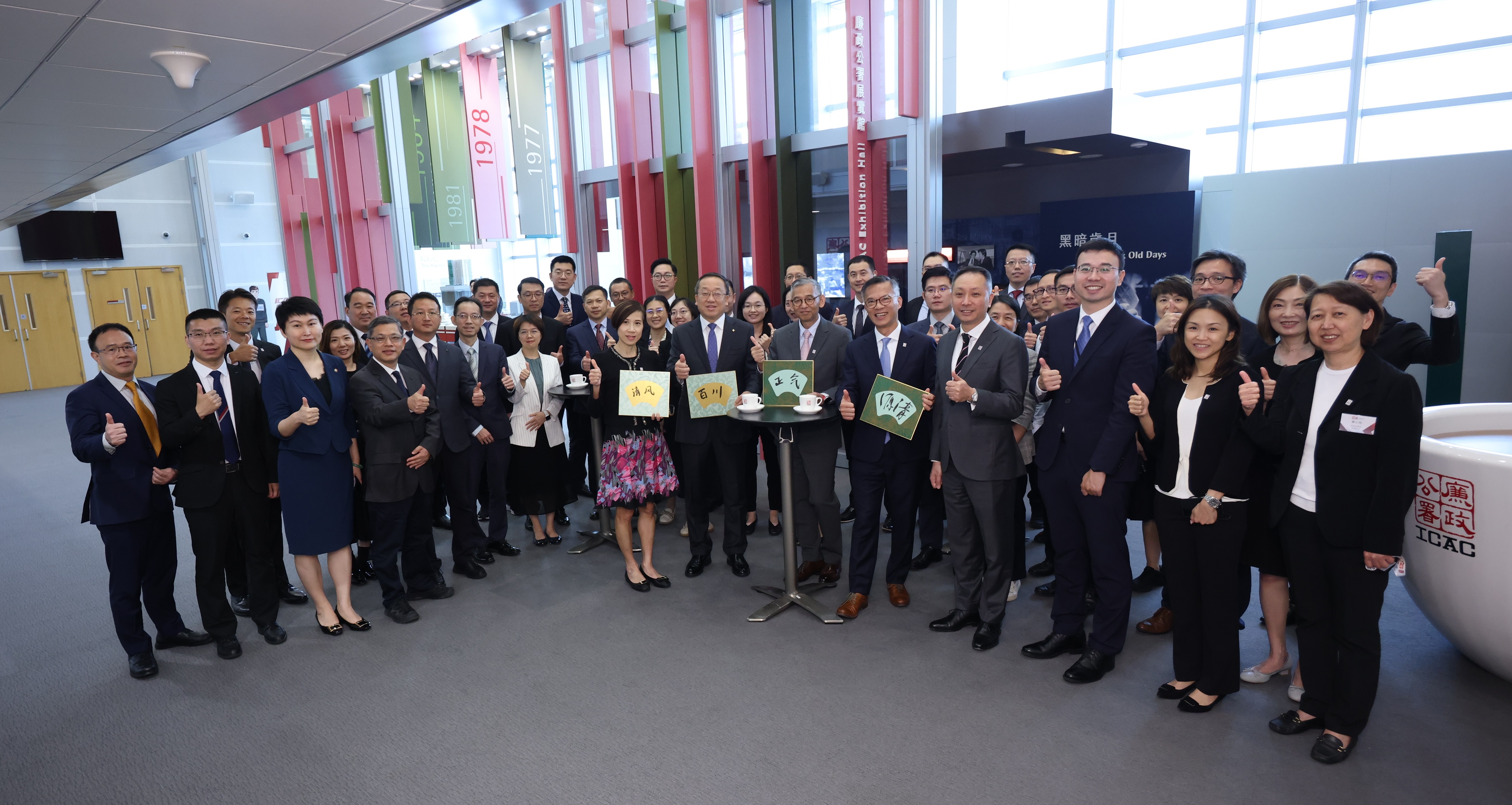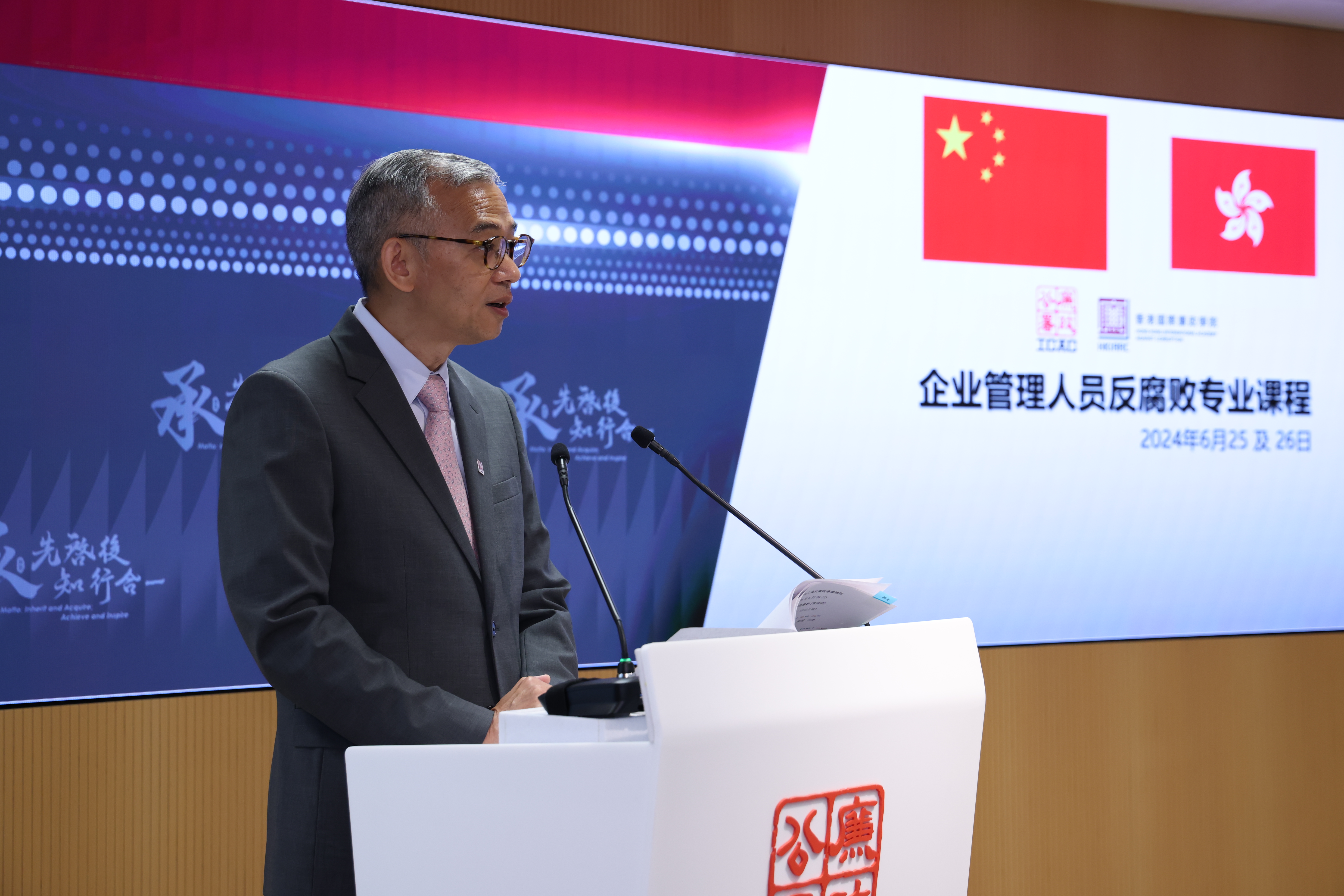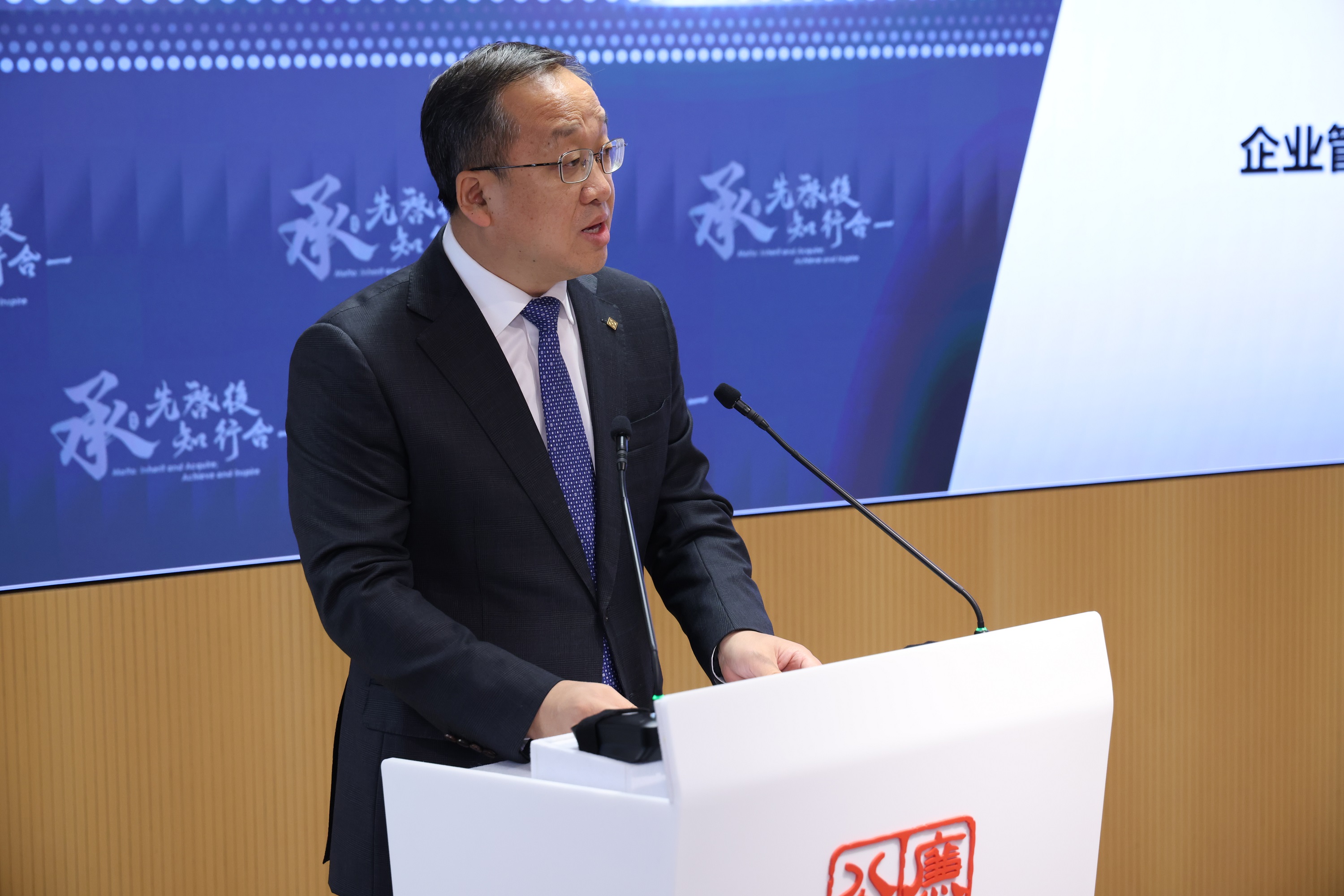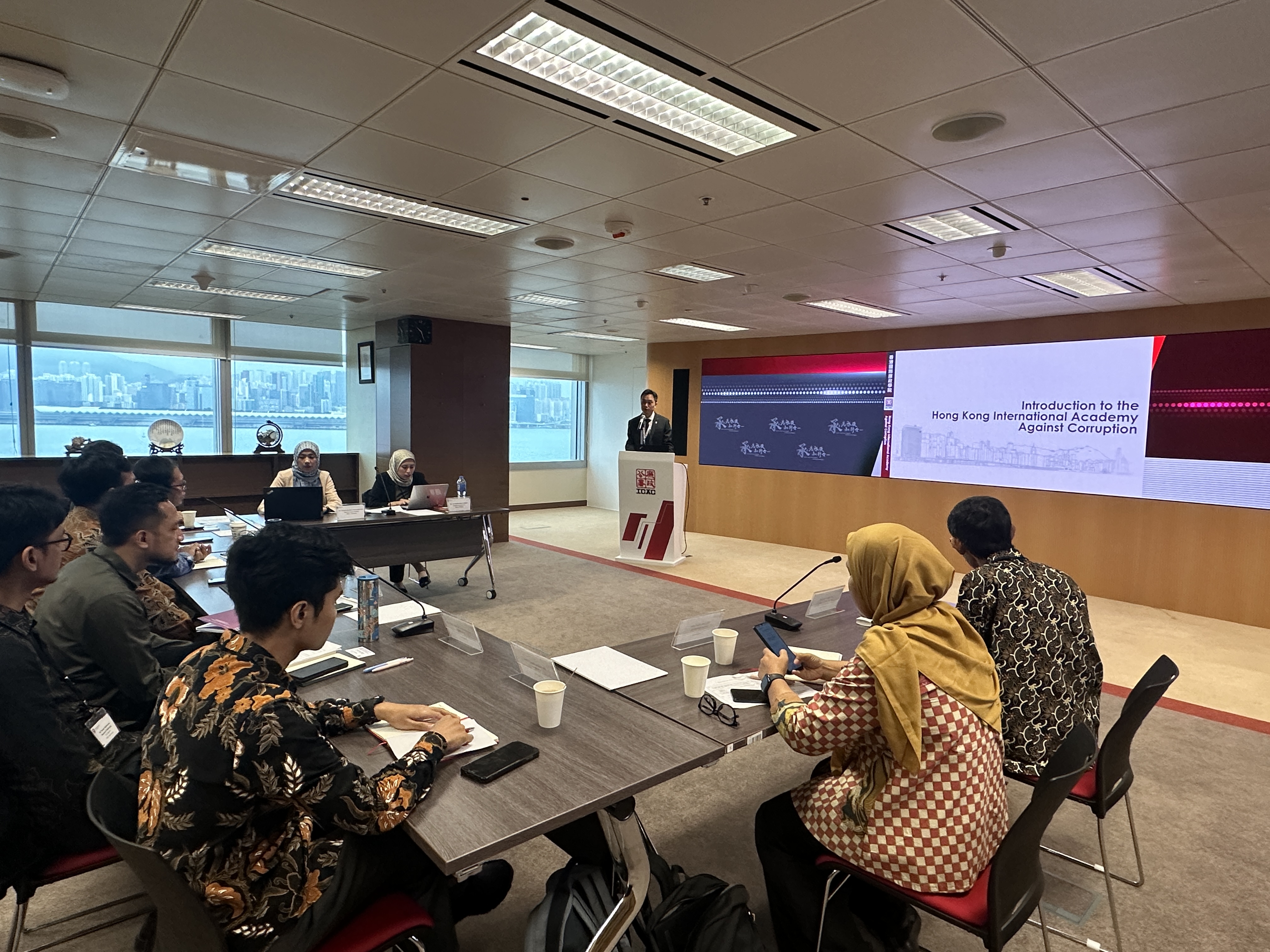Chinese enterprises in Hong Kong join anti-graft course to foster integrity management
2024-6-26
Thirty senior management from Chinese enterprises in Hong Kong participated in a two-day “Professional Anti-corruption Training for Corporate Senior Executives” organised by the Hong Kong International Academy Against Corruption (HKIAAC), featuring experience sharing by ICAC officers and Mainland anti-corruption academics who shared a commitment to upholding integrity and compliance in business organisations operating in Hong Kong.
Under the coordination of the Hong Kong Chinese Enterprises Association (HKCEA), the course was supported by prominent Mainland enterprises in Hong Kong and was attended by their managerial staff of compliance and anti-graft departments. At the closing ceremony today (June 26), ICAC Commissioner Woo Ying-ming noted that in the latest World Competitiveness Yearbook 2024, Hong Kong’s competitiveness improved by two places to fifth among 67 economies. Under the indicator “bribery and corruption do not exist”, Hong Kong jumped six places to the remarkable fourth position from tenth last year and topping the Asia-Pacific region. The result reflected that enterprises and investors were confident of Hong Kong’s business environment and anti-corruption work.
He also remarked that many Chinese enterprises based in Hong Kong were rooted in the city and had made significant contribution to Hong Kong’s economic development. With more Mainland companies expanding overseas, Chinese enterprises in Hong Kong played an important role in promoting a culture of integrity.
“With the strong support of the country, Hong Kong will tie in with the National 14th Five-Year Plan, the strategic development of the Guangdong-Hong Kong-Macao Greater Bay Area as well as the Belt and Road Initiative, and fully integrate into the overall development of the country. Serving as the country’s ‘super connector’ and ‘super value-adder’, Hong Kong can facilitate Mainland companies to go global and can also bring in foreign enterprises, leveraging Hong Kong’s integrity culture, enterprises can step onto the global stage,” said Woo.
Woo hoped the course would further enhance the governance of Chinese enterprises in Hong Kong and strengthen their preventive measures to guard against corrupt practices. Compliance with relevant ethical principles and legal standards would benefit their business and long-term development of their organisations, he added.
President of HKCEA Yu Xiao, who also officiated at the closing ceremony, said: “Notwithstanding the short duration of the course, its contents were comprehensive and has enhanced participants’ understanding of the latest development of anti-corruption work in Hong Kong and relevant corporate integrity regulations under Belt and Road Initiative. All these have deepened participants’ understanding of both the national and Hong Kong’s anti-graft efforts which will be useful in future.”
Yu also noted that HKCEA would continue to collaborate with the ICAC to encourage member companies to familiarise with the latest anti-corruption policy and legal requirements in Hong Kong, ensuring the stable development of Chinese enterprises as Hong Kong entered a new chapter and advanced to prosperity.
For the first time, Dr Liu Yi from the Institute of Discipline Inspection and Supervision of Tsinghua University was invited to address participants as a guest speaker. He shared valuable insights into opportunities and challenges faced by enterprises in establishing a culture of integrity within the context of the Belt and Road Initiative.




